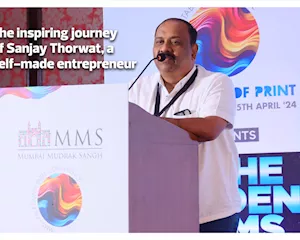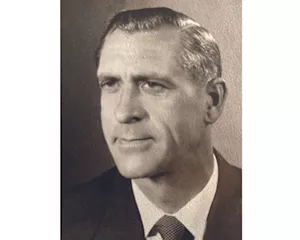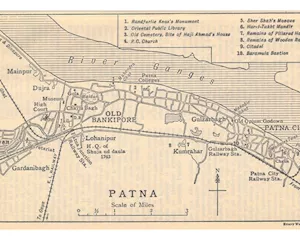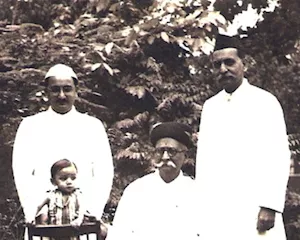Jaipur casts its spell once more
The Jaipur literary festival is becoming a Mecca for international book people. But it must now start taking children's and YA literature seriously. Jaya Bhattacharji Rose reports.
10 Feb 2013 | By Jaya Bhattacharji Rose
"JLF is important to me as a publisher because it is the most vibrant literary festival I've ever been to, because the events are free, the audiences are huge, engaged and passionate, the authors come from all over the world and the level of discourse is consistently high. Furthermore it's in a beautiful place and it is huge fun!" - Alexandra Pringle, editor-in-chief, Bloomsbury.
"This was my fourth time at the JLF - the first time was more whim than anything, the second a wondering if I had dreamt the first. These past two have made it feel, for me, the deepest, most energising, most spirited festival that I know of - even as there'll be moments (crowds) when I am thinking, Never again. That abates. I'm sure there is some hype or trendiness, even, about it among many there. That I feel removed from - I do see a unique gathering, not only of South Asian writers of a wide array, but a fascinating, provocative mix of others from elsewhere, too. I got to see US writers such as Gary Shteyngart in a new light, as well as writers from my coast of North America (Abraham Verghese, Anosh Irani, Reza Aslan, and Laleh Khadivi). Seeing and meeting the last (for a first time) was its own revelation - as last year seeing Teju Cole and Taiye Selasi were. There were also great cross-country conversations on books and publishing - colleagues from New Delhi, Karachi, London, New York, and Seattle part of that" - Rick Simonson, Elliot Bay Book Company, Seattle and jury member, DSC award for literature 2013.
January - a month in the literary calendar has become synonymous with the Jaipur Literature Festival. It is organised at the Diggi Palace grounds. In its short life span it has attained the reputation of being the mecca of all literary events worldwide.
The focus is literature but it is also an extravaganza. There are six parallel sessions of panel discussions taking place in different parts of the palace grounds. Activist-cum-writer Mahashweta Devi, who gave the keynote address at JLF this year with her speech "O to Live Again", stressed that "the right to dream should be the first fundamental right of people". In answer to a question by a young schoolgirl, asking which language should she choose to begin her literary career, the sane advice given was "write in the language that comes most naturally to you… write in the language in which you dream."
Another well attended session this year was the conversation between His Holiness the Dalai Lama, Nobel Laureate, with Pico Iyer. The Dalai Lama strongly advocated democracy and felt that "the 21st century should be the century of dialogue. This is the only way forward."
JLF has also become synonymous with some splash about a literary stir. Last year it was the public reading of The Satanic Verses and the banning of Salman Rushdie. This year it was the comments on corruption and the Dalits made by Ashis Nandy. As Urvashi Butalia, the feminist and publisher who chaired the session, says in an article "The Politics of Protest", TimeCrest, 3 Feb 2013), it happened during the panel discussion, titled 'The Republic of Ideas', and slated as one of the opening discussions on Republic Day, [that] began with an exploration of the idea of a republic, or an imagined utopian future, raising questions about whose ideas were those that were represented, whose future they imagined, whether or not this future was evolutionary, changing, or whether it was static, and whether or not imagined utopias always carried within them their own imperfections, their own dystopias.
The panellists were five men - the television journalist Ashutosh, writers Patrick French and Richard Sorabji, journalist cum writer Tarun Tejpal, and academic, philosopher, thinker, writer Ashis Nandy. Initially open and wide- ranging, the discussion soon, inevitably, began to focus on India. It was in this connection that the subject or corruption, so close to the hearts of many people, came up. Ashutosh mentioned it in relation to his book on Anna Hazare, Tarun Tejpal took it up, asserting that in India, where the poor were denied any means of upward mobility, corruption provided one such avenue and was a great equaliser. Ashis Nandy then took this one step further, signalling his agreement with Tarun Tejpal and expanding his argument to say that while the rich used sophisticated methods to hide their corrupt practices, the poor were not so skilled at this, and therefore their corruption was much more visible, but that as long as it existed, the republic would survive.
When I first attended the festival in 2007, it had a more relaxed atmosphere. There were people sitting out on the front lawns, mingling with the authors. But in 2013 it was very different. It began with the walk down the lane through police barricades (installed to control the crowds) for free registration; then there were a couple of halts to be frisked, and to get your bar-coded tags "read" (a process to be repeated inside the venue, every time you entered a panel discussion). There was a lovely mix of international (Howard Jacobson, Christopher Ricks, Aminatta Forna, Elif Batuman) and Indian (Manil Suri, Ambai, Jeet Thayil and Tishani Doshi) literary stars, mingling with Bollywood actors (Sharmila Tagore, Javed Akhtar and Shabana Azmi) and cricketing legends like Rahul Dravid. As Sanjoy Roy, Producer of the JLF, said in an email to me: "This year's festival was bigger and better, in spite of the controversies that arose the level and discussions and debate was excellent and every visitor was able to drink in knowledge from the many platforms we had."
Some of the interesting statistics emerging from the festival are that about 122,000 people registered (approximately 10% international, US, UK, Australia, 40% metros, 50% local); there were 293 authors, 145 performers, and over 200 publishing professionals; and 18 local languages were represented.
JLF is also the platform where the DSC Prize for South Asian Literature, worth US$ 50,000, is announced. This year it was won by poet and author Jeet Thayil for Narcopolis. He had been nominated four times for literary awards, including the Man Booker Prize, but never won. As he said: "Finally. Yes, money does matter to writers. We too have bills to pay."
For the first time the shortlist of the International Man Booker Prize 2013 was also announced at JLF. The finalists of 2013 include U R Ananthamoorthy (India), Aharon Appelfeld (Israel), Lydia Davis (US), Intizar Husain (Pakistan), Yan Lianke (China), Marie Ndiaye (France), Josip Novakovich (Canada), Marilynne Robinson (US), Vladimir Sorokin (Russia) and Peter Stamm (Switzerland).
Another first associated with the festival was the setting up of the German Book Office's event, Globalocal. Usually held in Delhi, this time it was organized immediately after the JLF to maximize participation of publishing professionals, many of whom were in Jaipur attending the lit fest. JLF is a fertile ground for the conducting of business - literary agents meeting new authors, publishers promoting their lists, but also having conversations on the side lines to improve business. The official dinners organized (which are by invitation only) are a treat to attend for the calibre of conversations to be had with authors and publishing professionals. Yet as children's writer and IBBY Award-winner Paro Anand says, "JLF is such a Mecca for bookers but it's going to be incomplete until it includes contemporary trends of YA and children's literature in the mainstream events and not just a sideshow. I think JLF has set so many trends so why not this too?"
Sure the event is crowded and at times the noise from one session can be heard in another, but the spell the fest casts ensures repeated visits.
Jaya Bhattacharji Rose an international publishing consultant and a columnist for PrintWeek India.
This article was first published in BookBrunch.











 See All
See All